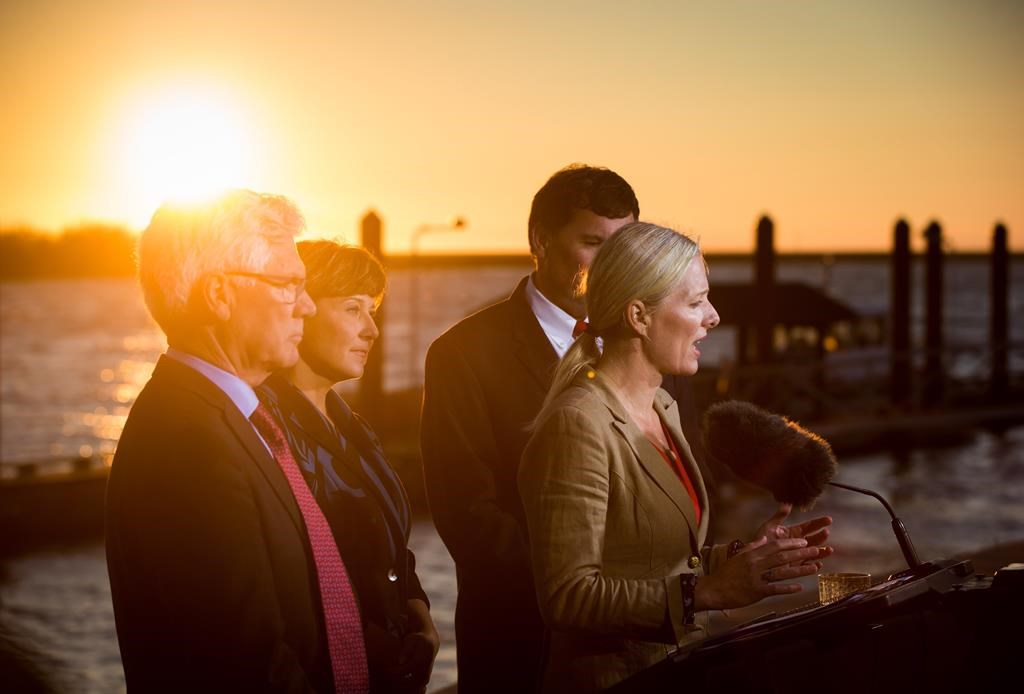Support strong Canadian climate journalism for 2025
When Natural Resources Minister Jim Carr, announced last January that he would seek “an extension to the legislated time limit for the Government’s decision by four months” on Trans Mountain’s expansion it was presented as if a final decision to accept or reject the project would be given by December 19, 2016.
But the federal government has always had three options available to it—not one.
The first option is as we were told. The government may make a final decision by December 19. If Ottawa exercises this option it will either direct the National Energy Board to issue the certificates so Kinder Morgan can build and operate the expansion or direct the Board to dismiss the application. This approach is consistent with section 54(1) of the National Energy Board Act.
The second option extends the time limit for the government's final decision beyond the current date. Section 54(3) of the Act says, “The Governor in Council may, on the recommendation of the Minister, by order, extend that time limit by any additional period or periods of time.”
Section 54(3) is how the original four month extension was facilitated. It can be used again. This is how the Federal government extended its decision date for Northern Gateway to November 25, 2016. Cabinet decided it needed “more time to determine next steps following a recent Federal Court of Appeal decision that invalidated Order in Council P.C. 2014-809 of June 17, 2014.”
The third option allowed by the Act is for the Government to send the Report back to the NEB for reconsideration. Section 53(1) states, “After the Board has submitted its report under section 52, the Governor in Council may, by order, refer the recommendation, or any of the terms and conditions, set out in the report back to the Board for reconsideration.”
A reconsideration order may be made at any time prior to the legislated time limit. The time it takes the Board to reconsider is not included. For example, if a request for reconsideration were sent to the Board in November, and the order specified the Board had six months to do its work, the current decision deadline would be moved to June 19, 2017.
Minister Carr is itching to get Trans Mountain approved. He’s telegraphed this desire in interviews and public speeches. He’s tried to convince Canadians that the flawed Ministerial Panel was a credible process so that when the Government says. “yes”, Canadians will be placated. Why then would the Government delay the final decision?
Minister Carr has been misinformed by NRCan staff and by the NEB report. He’s been told the expansion is urgently needed—that Kinder Morgan will start construction almost immediately. He’s been led to believe that the pipeline will start pumping Alberta’s diluted bitumen within three years. Under current supply realities and financial constraints, this is highly unlikely.
Even the NEB knows the commercial viability of the expansion is compromised. The Board knows there is a strong likelihood construction may not start for half a decade. This is why Condition 5—the Certificate Expiration or Sunset Clause—was included in its report. This clause allows Kinder Morgan to delay construction for five years even though the company assured the Board it only needed one.
The Sunset Clause states, “Unless the NEB otherwise directs prior to 30 September 2021, this [certificate/order] will expire on 30 September 2021, unless construction of the Project has commenced by that date.”
Five years to begin construction is unprecedented. The Board gave Northern Gateway three years before its certificates were set to expire, while Keystone XL was given one year. The Board has protected Kinder Morgan from market conditions by granting the company a right to sit on its NEB certificates and delay construction until September 2021.
Maybe Minister Carr will take stock. Maybe he will think about the impact crude oil prices have on future supply—connect the dots between his government’s stated climate change policies and their impact on oil sands output. Maybe he will see that there is no urgent need for Trans Mountain’s expansion; that sufficient transportation capacity exists to ship Western Canadian oil until at least 2025.
If the Federal government does not have the fortitude to reject the project on December 19 as it should, then it must honour its commitment to redo the Trans Mountain review under a credible quasi-judicial process as Prime Minister Justin Trudeau promised. There’s plenty of time.
Minister Carr said “existing major oil infrastructure bids will be assessed under the law as it currently exists.” The NEB Act gives the Federal government all the legal authority it needs to defer a decision on Trans Mountain’s expansion until after the NEB overhaul is complete and the regulator has both the ability and credibility it needs to do the job it should have done in the first place.
As it stands, the NEB Report is not credible. Neither is the process Minister Carr developed for assessing it. This is why federal government approval of the expansion on or before December 19 will never be accepted by the Canadian public or First Nations.






Comments